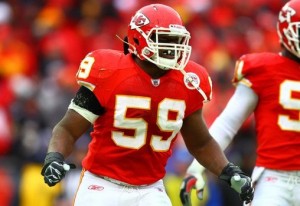As we near the end of the NFL regular season, we’re right back where we started: traumatic brain injuries.

In September, as we reported, the league donated $30 million to the National Institutes of Health to further research into “chronic traumatic encephalopathy,” a neurodegenerative disease common among professional footballers. CTE, according to Boston University’s Center for the Study of Traumatic Encephalopathy, is marked by “irritability, impulsivity, aggression, depression, short-term memory loss and heightened suicidality,” and shows up in the decades after athletes—and in some cases combat veterans—are exposed to repetitive concussions.
This week the center is out with a new report, examining 68 CTE victims who left their brains to research after death. Among the subjects were three dozen former NFL players—including Hall of Famers John Mackey and Ollie Matson—a handful of pro hockey players, veterans who served in Iraq and Afghanistan, and Eric Pelly, a Pittsburgh high school rugby player who took a knee to the temple in a match, spent three days in the hospital, and later collapsed at his family’s dining room table. More than a quarter of the victims had committed suicide; others were felled by overdose.
Of the 35 pro football players’ brains examined for CTE, just one showed no signs of the disease. And a third of all victims showed signs of other pathologies, including Alzheimer’s and motor neuron disease.
Fans have been wondering this week, both privately and aloud, if traumatic brain damage had a role in Kansas City Chiefs’ Javon Belcher’s recent suicide. The 25-year-old linebacker killed his girlfriend in a domestic dispute early Saturday morning, drove to Arrowhead Stadium, and, standing before his coach and general manager, turned the gun on himself. Belcher is the fourth current or former NFL player to commit suicide this year, and a friend told Deadspin that he had a habit of drinking heavily, using painkillers, and “was dazed and was suffering from short-term memory loss” after taking hard hits in a recent game.
But then, Belcher was young, without a long history of concussions, according to the Chiefs’ front office. It’s impossible to tie his suicide to brain injury—now or, possibly, ever.
Even so, the growing reams of medical evidence, plus a class-action lawsuit brought against the NFL by more than 3,000 retired players, mean that the league’s headache won’t be going away anytime soon.


